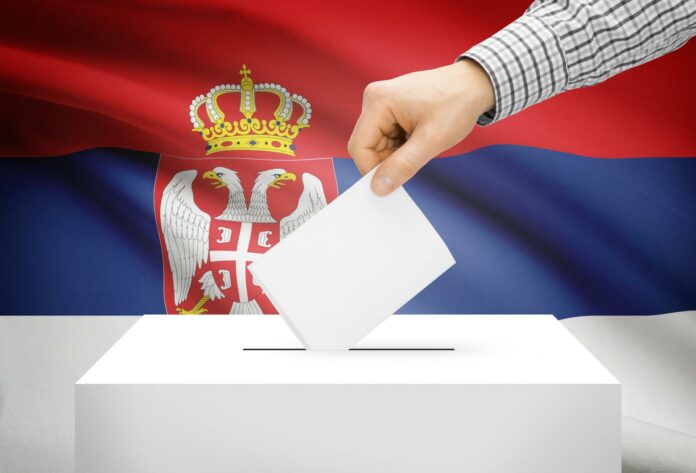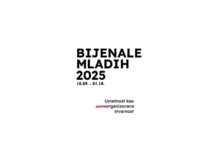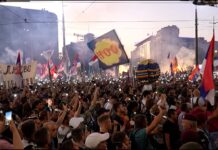Written by: Darko Mandić
“Serbia is approaching a record number of elections in the Balkans.“ – This is the opening sentence of a local media outlet, which, as an overture, introduces readers to an already worn pamphlet of “new”, snap elections in mid-December 2023. It seems that the inhabitants of this, by the number of elections, “pre-democratic” country, once again fulfill their civic duties in the spirit of the Christmas holidays, and it is expected that in addition to the New Year, incidentally, they will also celebrate the new parliamentarians.
The so-called democratic changes in Serbia came after the revolution of October 5, 2000 and the removal of the then president Slobodan Milošević, who left his position together with his political apparatus and thereby enabled the change of such an outdated regime. The people of Serbia, then inspired (at least on paper) by new ideas, strongly decided to devote themselves to further progress and development, and to consign the old regime to the political past. The spirit of hope and desire emanated from the awakened Belgrade, which really lived its slogan – “It’s not very Belgrade not to go to protests”. A slogan, which is a bright example for other, crushed cities in the region.
Nevertheless, today, 23 years later, Serbia and Belgrade are entering new elections, which are somewhat recreational? The anti-democratic regime, active during the Milošević era, not only did not disappear, but today it is the one that initiates elections. It sounds paradoxical, but that regime, or rather the people from it, who so “stoically” endured Western sanctions and threatened European officials at the time with a new court in Nuremberg, are today the originators (or rather one originator) of the European and democratic values of the country of Serbia. In order not to waste too many words about the current bearer of the state’s burden, the initiator of these snap elections, who often, as he claims ‘sleeps for 14 minutes a night because of concerns for development of his “European” country’, it is enough to say – one man.
If you were to ask the citizens of Serbia what the parliamentary elections are for you (not to mention the word snap), I guarantee that you would mostly get answers that would almost always have one generic name in them, i.e. the last name – Vučić. A big problem lies in this undemocratic and autocratic view of politics. Aleksandar Vučić, with all his character traits, is still the president, who, at least according to the Constitution, has certain powers. Often formal, factually sometimes very important (let’s say the commander-in-chief of the army – no matter how strange imagining the president on the battlefield looks?). However, these powers are certainly not the executive (government) and more importantly, not the legislature. Although it used to work as a synonym in Serbia, the president does not equal the law and that is a basic fact. The citizens of Serbia should decide about that legislative power… After all, it’s the holidays, so what about we add to questions like ‘Where are you going for New Year ’s Eve or what gift will you buy?’ – the one ‘Who will you vote for?’?

That question – who to vote for, although mostly rhetorical, can (and should) be asked in a very dramatic context, much more serious and concerned. How did we get to the position that today, in “pre-democratic” Serbia, autocracy has become a synonym for politics – and why do the existing alternatives look so see-through, weak and, somehow, old? Political diversification in Serbia, although it exists on paper, seems to have remained fossilized from the time of some previous regimes, and its actors, instead of in a museum, are placed in the assembly. The upcoming elections seem to be copied from the previous ones, where the same (unsolved) problems are brought to the fore, the people are intimidated by identical platitudes, and the golden age is just as close (far) as in the previous elections.
Political changes in the region, not only in Serbia, are a slow process. Montenegro experienced changes only after 32 years of its autocrat (also characterized as a dictator in the West), Tito’s youngest disciple, and in Bosnia and Herzegovina, changes took a long time – when speaking of Bakir Izetbegović, as if he had ascended the throne of his father in a monarchical manner. However, so that the Prince of Bosnia (Bakir) would not be alone in his political doctrine, the absolute master of the Republika Srpska entity, Milorad Dodik, like a father-bear, guards his cave. I wouldn’t spend too much time talking about the kindergarten level fights on the route Plenković – Milanović in the “lijepa naša” (Croatia).
So, general (tragic) comedy dominates these tormented areas of ours, and the election processes themselves are more like those of Kafka, and somehow, we always go back to the beginning. It is strange how the hopes and ideals of a once inspired generation have now been turned into pure disappointment and frustration, which is so deeply rooted in a nation that there are simply no expectations from the elections themselves. While the youth is leaving, the opposition and the government continue their bad show, which they have been playing for more than two decades, from which we have all become tired and exhausted.
Serbia, as it should at least in theory, is at a new turning point. However, that crossroads is not really what it is – the political motives in the country are the same, the actors are mirrored and again we have reached the beginning of the 21st century, again the basic question is – us or him, only this time “him” refers to a little taller and a less gray haired man. Perhaps, it would still be perfectly fine to quote the poet Đorđe Balašević from the beginning of these “democratic” changes – “We are to blame.”













